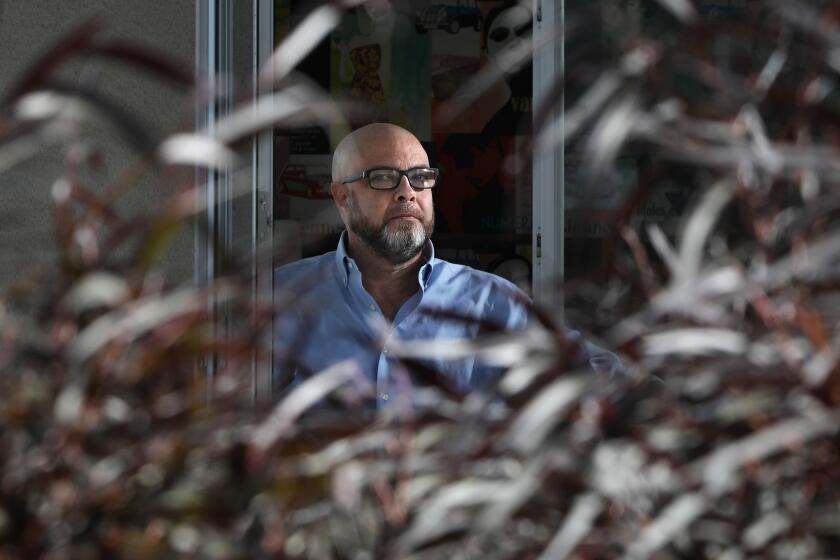Newsom signs bill to curb spread of child sexual abuse material on social media

- Share via
California Gov. Gavin Newsom on Sunday signed a bill into law that would hold Facebook-owned Instagram, TikTok and other social media platforms liable for failing to combat the spread of child sexual abuse materials.
Under the new law, Assembly Bill 1394, social media platforms will be barred starting in January 2025 from “knowingly facilitating, aiding, or abetting commercial sexual exploitation.” A court would be required to award damages between $1 million and $4 million for each act of exploitation that a social media platform “facilitated, aided, or abetted.” The platforms could avoid lawsuits by conducting biannual audits to detect potentially harmful designs, algorithms and features and fix any problems.
From the sale of deadly drugs to child sexual abuse images, social media can pose dangers. Lawmakers are targeting the platform’s algorithms, designs and features amid calls to hold tech platforms accountable for safety risks.
AB 1394 also requires social media platforms to give California users a way to report child sexual abuse material they’re depicted in and respond to the report within 36 hours. If they failed to meet certain requirements such as permanently blocking the material from being viewed, they would also be liable for damages.
The bill’s signing is a victory for child safety advocates who pushed for the legislation amid stiff opposition from tech groups that urged lawmakers to delay its passage for another year.
Assemblymember Buffy Wicks (D-Oakland), the bill’s author, and child safety advocates applauded Newsom for signing the legislation.
“This law underscores our state’s dedication to defending the most vulnerable among us, and sends a resounding message to other states and tech platforms that using the internet to exploit children will no longer go unchecked,” Wicks said in a statement Monday.
Common Sense Media, a nonprofit that advocates for online child safety, said in a statement that the “inadequate self-policing” of child sexual abuse materials by social media companies has harmed young people and their families.
“We have more work to do to hold social media platforms accountable for harms they cause to kids and teens and their families, but today’s signing into of AB 1394 is a major step in the right direction,” said Jim Steyer, founder and chief executive of Common Sense Media, which co-sponsored the bill.
Industry advocacy groups NetChoice and TechNet opposed the legislation, stating that it would have a “chilling effect” on free speech because tech platforms could end up pulling down more lawful content or disabling features popular among teens. The groups haven’t said if they planned to sue over AB 1394, but signaled to lawmakers that legal challenges could be coming. NetChoice and Technet didn’t respond to a request for comment sent on Sunday night.
California is already facing lawsuits over legislation targeting online platforms. X, formerly known as Twitter, sued California over a law that would require social media companies to disclose their content moderation policies and provide a report to the California attorney general. A federal judge in September also temporarily blocked an online child safety bill after NetChoice, a group whose members include Facebook parent company Meta, Google and TikTok, filed a lawsuit against California.
Child sexual abuse material has been an ongoing problem for online sites. Social media platforms take action against millions of pieces of child sexual exploitation content every quarter. They’re required under federal law to report the content to the National Center for Missing and Exploited Children.
From April to June, Facebook took action against 7.2 million pieces of content that violated its rules against child sexual exploitation, according to data reported quarterly by the company. During that same period, Facebook-owned Instagram took action against 1.7 million pieces of child endangerment content.
More to Read
Sign up for Essential California
The most important California stories and recommendations in your inbox every morning.
You may occasionally receive promotional content from the Los Angeles Times.












